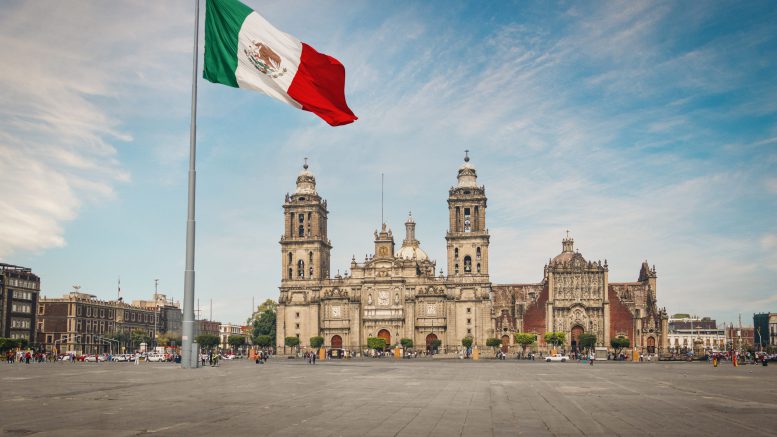Claudia Sheinbaum, a climate scientist, won Mexico’s election to become the country’s first female leader and is expected to continue the anti-mining policies of outgoing President Andres Manuel López Obrador.
Sheinbaum secured the most ballots on June 2 in the nation’s 200-year democratic history, about 60% of the vote, according to the country’s electoral authority. The tally also showed her coalition of parties secured more than two-thirds of the lower house of Congress, but fell just short of that mark in the Senate. The threshold is required to change the constitution without the opposition’s consent.
“The country’s security situation and rising fiscal deficit, coupled with the strengthening of the Mexican peso, will represent critical challenges for her presidency,” Colin Hamilton, BMO Capital Markets director of commodities research, wrote in a note on June 3.
“From a mining sector perspective it is unclear whether this will mean any lifting of restrictions, such as the de facto ban on new open pit mines, though we would see this as only a possibility rather than a probability in the near term.”
Sheinbaum, a former mayor of Mexico City who has cited López Obrador as her mentor, campaigned on a platform of affordability and promises to tackle corruption. The election saw the murders of around 37 candidates as drug cartels seek to control political outcomes.
Pros and cons
To her benefit, the president-elect with a doctorate in environmental engineering, exercised a technocratic approach to crime as mayor and enlisted the business community. But she faces challenges such as low investment from foreign companies new to Mexico, gangs smuggling drugs and migrants into the United States and the erosion of democratic institutions that may target judges next, according to The Economist magazine.
“Sheinbaum’s to-do list is clear: tackle disorder, boost trade and investment and strengthen democracy,” the London-based publication wrote on June 2. “Yet is she really up to the task? One fear is that despite her technocratic credentials and style she is a captive of Mr López Obrador’s agenda.”
The campaign saw Sheinbaum speak more about policy continuity and protecting López Obrador’s legacy than about her own proposals, the magazine noted. Her predecessor governed by whim and bombast, it said.
Peso falls
Mexico’s peso fell against the dollar after the election as investors raised concerns about the ruling Morena party’s potential to be unchecked in Congress if it could attract a few more seats in the Senate to its policies.
The currency dropped 4.4% against the Canadian dollar to trade at the weakest level since November. One dollar bought 12.88 pesos just before the vote compared with 13.45 pesos near press time.
An opinion piece in The Wall St. Journal on June 2 warned Sheinbaum’s government may seek to directly elect Supreme Court justices, end proportional representation for congressional seats, and eliminate the Federal Economic Competition Commission and the National Institute for Transparency, Access to Information, and Protection of Personal Information.
“The reforms would be bad for Mexico, although in the short run things might not change much,” Mary Anastasia O’Grady wrote. “The frog would boil slowly.”


Hopping, because mining law, Mexico will be an attractive country for private investment; otherwise mining will be buried forever.
As an Environmental Ph.D., President-elect Sheinbaum knows that open mining can be safe when the highest preventive measures are applied. International examples of open-pit operations have managed to safeguard the environment despite alterations. Mining tailings are more harmful than open-pit operations, which harm the environment and constitute significant health risks, including cancer and other diseases. Addressing this issue is crucial. Therefore, President-elect Sheinbaum should thoroughly review this policy by assembling a team of highly skilled mining companies to conduct an in-depth investigation, appointing a Minister knowledgeable in the scientific aspects of mining and its economic impact, and selecting experts for state agencies that provide these services. Prohibiting open-pit operations harms our economy and hinders mining companies from investing in regional exploration. Due to high metal prices, diamond drilling is the only exploration conducted. These adversely affect junior regional exploration companies, reducing the number of productive exploration geologists and mining engineers. As a result, professionals and students are forced to seek employment unrelated to geology, and universities face uncertainty regarding the future of their programs and budget allocations. The question arises: should open-pit mining be removed from their curriculum, or should the President-elect modify the mining law to align with the new demands of Mexico’s economy and growth?